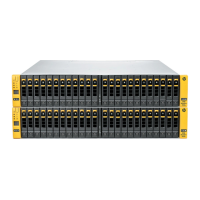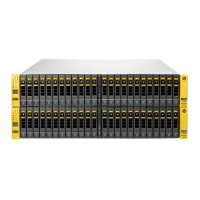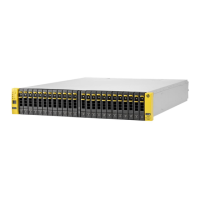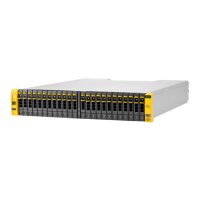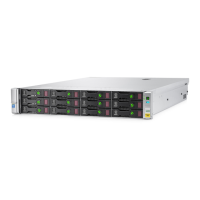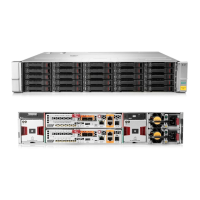Querying a Single VLUN
To query a single VLUN, use the HTTP GET method on the following URL:
https://<storage system>:8080/api/v1/vluns/<vlun id>
where:
• <vlun id> is the VLUN identifier returned in the location header after the VLUN was created.
• <vlun id> format can be one of the following:
<vvname>,<lunID>,<hostname>,<portPos>◦
◦ <vvname>,<lunID>,<hostname>
◦ <vvname>,<lunID>,<portPos>
The <vvname> and <lunID> fields are mandatory. The <hostname> and <portPos> fields
are optional, but one or both of them must be specified.
NOTE: The use of patterns or sets in querying volumes and hosts is not supported in WSAPI 1.2.
In order to query a single instance of a VLUN object, the specific volume name and host name
must be specified.
Single-VLUN Query Success
Upon a successful VLUN query, the HTTP code 200 OK is returned.
Table 74 Message Body JSON Objects for Single-VLUN Query Response
DescriptionAPI TypeJSON TypeMember
Number of VLUN objects
returned.
int32numbertotal
VLUN properties.array of VLUN Property
objects
array of objectsmembers
(Since WSAPI 1.2
As with all collection queries, the total is the number objects in the collection.
NOTE:
If no VLUN is specified with the volume name, LUN, and host and/or port, a NON_EXISTENT_VLUN
error is returned.
The members object is a JSON array of zero or more JSON objects as listed in Table 75 (page
76).
Table 75 JSON Objects for members object in Single-VLUN Query Response
DescriptionAPI TypeJSON TypeMember
LUN ID.int32numberlun
(Since WSAPI 1.2)
Volume name.name31stringvolumeName
(Since WSAPI 1.2)
Host name.name31stringhostname
(Since WSAPI 1.2)
Host WWN, or iSCSI name,
or SAS addr, depending on
the port type.
name31stringremoteName
76 Working with Virtual LUNs

